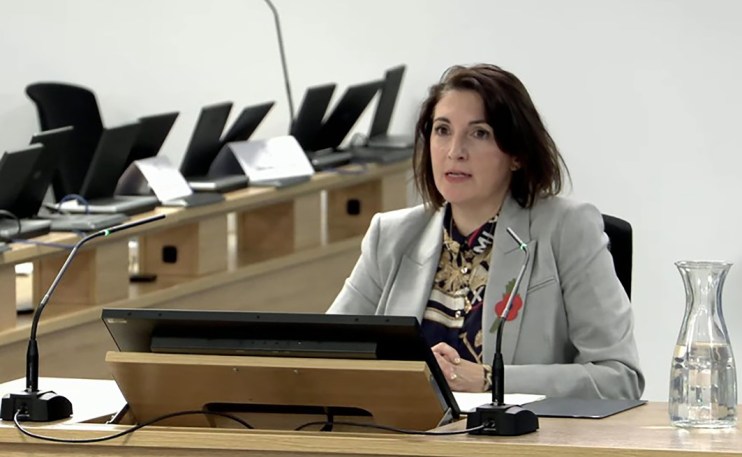No10 on ‘back foot’ from Brexit when Covid struck and rules broken daily, inquiry told

No10 was on the “back foot” from Brexit when the pandemic struck the UK and rules were broken on a daily basis inside Downing Street, the official UK Covid-19 inquiry has heard.
Former deputy cabinet secretary Helen MacNamara, who gave evidence today, wrote in her witness statement that the government was “on the back foot” after Brexit in early 2020.
She said then-prime minister Boris Johnson had a disregard for her “injections of caution” and was “very confident the UK would sail through…. [and] we were well prepared”, while there was an “unbelievably bullish” approach in Covid meetings, which were “macho”.
MacNamara told the inquiry Johnson was “breezy”, had a “jovial tone” about closing schools and workplaces and felt Italy was “overreacting” while others were “laughing at the Italians”.
She wrote: “We were going to be world-beating at conquering Covid-19 as well as everything else.”
On Friday, 13 March, 2020, she recounted “a very, very scary experience, and said she and others had gone to see Johnson to warn him the UK was “heading for a total disaster”.
Ex-chief of staff Dominic Cummings, who left No10 amid a feud with Johnson, previously described the events as a warning the UK was “absolutely f*****” and thousands would die.
Former civil servant MacNamara also outlined “nuclear levels of confidence” in government which she said were a problem, citing incidents such as ex-health secretary Matt Hancock imitating a cricket batsman.
She also said there was a “pattern” of reassurances on issues from Hancock before others discovered it was “very, very far from fine” – including on the fact Covid plans were in place.
“The usual systems of governance in Whitehall rely on people being truthful,” she said.
Pandemic rules were broken daily in No10, MacNamara suggested, saying: “I would find it hard to pick one day when the regulations were followed properly inside that building.”
And she warned “hundreds of civil servants and potentially ministers” could have been fined for lockdown-busting, given where the police drew the line on Johnson’s birthday gathering.
Partygate, she said, “should never have happened” and she expressed “profound regret” about a rule-breaking leaving party in June 2020 to which she brought a karaoke machine and was fined.
MacNamara said at the time she was worried about junior staff “breaking and suffering” due to the “kind of culture they were working in… and whether they were going to be okay”.
The former top civil servant said Westminster and Whitehall were “endemically sexist” and became worse during Covid, with women feeling “as if they had become invisible overnight”.
Women’s perspectives – on abortions, domestic abuse, pregnancy and birth, as well as PPE fitting the overwhelmingly female NHS and care workforce – was “being missed”, she said.
An email shown to the inquiry saw MacNamara state that women had suffered from domestic abuse in the first lockdown, in part due to government decision-making, and that “it is very difficult to draw any conclusion other than women have died as a result of this”.
Commenting on misogynistic remarks made about her by Cummings, as revealed in his own inquiry evidence on Tuesday, MacNamara said they were “horrible to read” and there had been a “toxic culture” and “not a pleasant place to work”.
She also criticised Johnson, saying it “is disappointing to me that the prime minister didn’t pick him up on the use of some of that violent and misogynistic language… it is just miles away from what is right or proper or decent, or what the country deserves.”
Cummings denied claims of misogyny after referring to the MacNamara, when she was deputy cabinet secretary, as “that c***” and sending messages saying he would “handcuff her and escort her” from Downing Street.
Hugo Keith KC, counsel to the inquiry, suggested to Cummings in his evidence-giving session yesterday, that he “denigrated women”.
Cummings responded: “No, that’s not correct. I was not misogynistic.”
He did, though, apologise for the “deplorable” language he had used in his messages.
